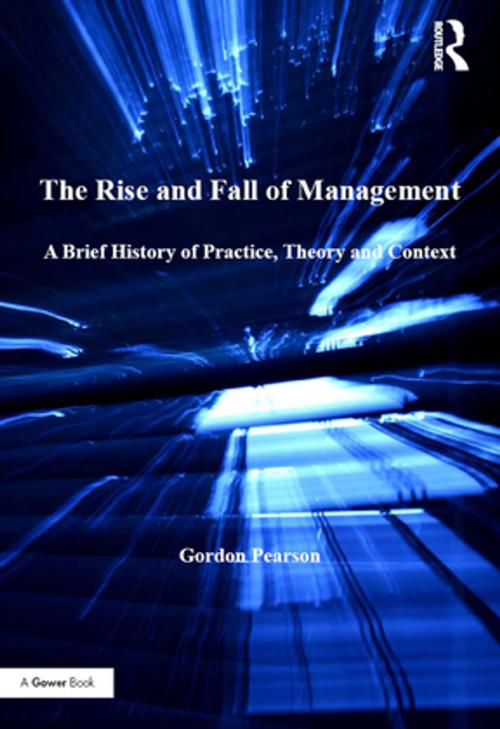The Rise and Fall of Management
A Brief History of Practice, Theory and Context
Business & Finance, Management & Leadership, Management| Author: | Gordon Pearson | ISBN: | 9781317017646 |
| Publisher: | Taylor and Francis | Publication: | March 3, 2016 |
| Imprint: | Routledge | Language: | English |
| Author: | Gordon Pearson |
| ISBN: | 9781317017646 |
| Publisher: | Taylor and Francis |
| Publication: | March 3, 2016 |
| Imprint: | Routledge |
| Language: | English |
Insight into today's economic and financial problems comes, in this revealing book, from an understanding of how and why the practice and the teaching of management has developed as it has. Gordon Pearson, who has spent equal parts of his long career as a practising manager and a management educator, clarifies through rigorous historical review the difficult issues around management with which we struggle today, such as why management custom and practice so often lead to contravention of the law. Pearson reviews how management became a practice and body of understanding, the development of its crucial role in economic progress, and then how its corruption came about as a result of malign theory, leading to the dominance of the bonus payment culture and short term deal-making that plague us today. Understanding management's past, suggests Pearson, will help its improvement for the future. Contributing to that understanding, this challenging book sheds light on how management might be renewed and on the benign role it could play if freed from the restraints of inappropriate economic theory. This book is not just a history or a sociological analysis of management. It gives a broad, practically informed, critical view of the subject that will be welcomed by any reader with a professional or an academic interest in practice, theory, and context.
Insight into today's economic and financial problems comes, in this revealing book, from an understanding of how and why the practice and the teaching of management has developed as it has. Gordon Pearson, who has spent equal parts of his long career as a practising manager and a management educator, clarifies through rigorous historical review the difficult issues around management with which we struggle today, such as why management custom and practice so often lead to contravention of the law. Pearson reviews how management became a practice and body of understanding, the development of its crucial role in economic progress, and then how its corruption came about as a result of malign theory, leading to the dominance of the bonus payment culture and short term deal-making that plague us today. Understanding management's past, suggests Pearson, will help its improvement for the future. Contributing to that understanding, this challenging book sheds light on how management might be renewed and on the benign role it could play if freed from the restraints of inappropriate economic theory. This book is not just a history or a sociological analysis of management. It gives a broad, practically informed, critical view of the subject that will be welcomed by any reader with a professional or an academic interest in practice, theory, and context.















